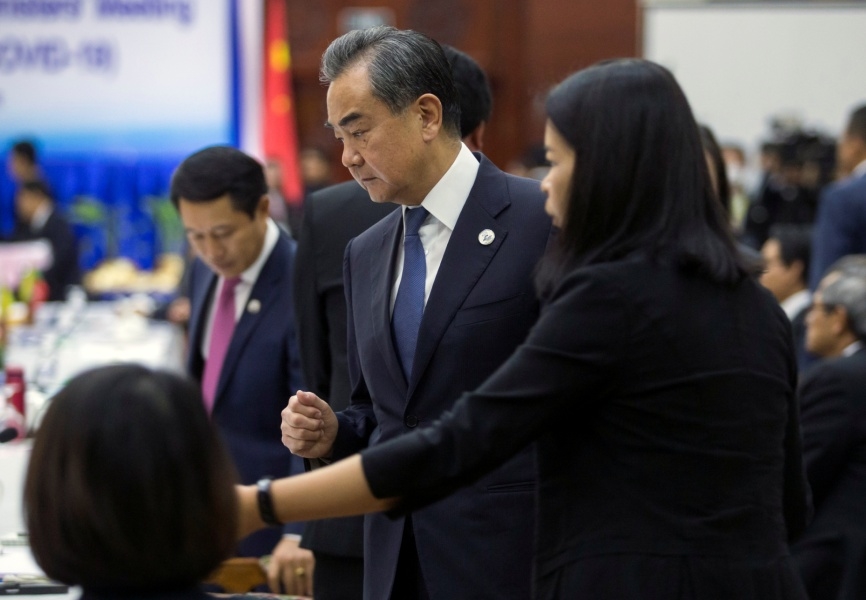China is attempting to leverage the pandemic to extend its influence in Southeast Asia, a key arena in its intensifying geopolitical, economic, and technological
rivalry with the US. With China's “test-kit diplomacy”—the supply of coronavirus test kits and other types of medical equipment—and its
offers of financial aid, the country aims to change the attitudes of populations that have historically viewed it with mistrust. As Eurasia Group expert
Peter Mumford explains, the effort is unlikely to dramatically change the balance of the power in the region, though it probably will reinforce a trend of expanding Chinese influence driven by the country's growing economic heft.
Beijing's orbit
China's goods trade with the ten member nations of the Association of Southeast Asian Nations (ASEAN) is nearly double that with the US. China's FDI in the region outpaces that of the US, though it trails investment by the EU and Japan. The smaller and lesser developed ASEAN countries feel China's economic pull most strongly. Cambodia and Laos have long been closely allied with Beijing, and
Myanmar, increasingly shunned by the West over the Rohingya crisis, has also moved closer. Amid the pandemic, these countries are suffering from a scarcity of medical supplies, as well as a lack of financial resources to mitigate the economic impact of the outbreak, so they are likely to turn to Beijing for additional assistance. Laos is also facing a potential external financing crisis that will likely lead its giant neighbor to offer a lifeline in return for increased influence.
Neutral countries
Other countries in the region have been developing closer ties with China while taking greater pains to maintain good relations with the US and other global powers. Chinese investment in Indonesia, for example, has been growing, especially in the natural resources and technology sectors, and President Joko Widodo (Jokowi) has been trying to nudge the country closer to China during his second term in office. Though anti-China/Chinese sentiment (a longstanding problem in the country) initially surged in online forums as the
Covid-19 crisis worsened, it seems to have dissipated, helped by government praise for Chinese assistance in tackling the outbreak. For Thailand, the pandemic has served as a stark reminder of how dependent the economy is on Chinese (and other) tourists, and the expected sharp economic contraction this year will make boosting investment and trade ties with China a priority. That said, the sharp economic slowdown is also fueling the debate within the Thai government over the merits of joining the Comprehensive and Progressive Agreement for Trans-Pacific Partnership. Membership in the ambitious trade pact, which excludes China (and the US, at least for now), would strengthen Thailand's ties with Japan and slow the strengthening of those with China. In Malaysia, Prime Minister Muhyiddin Yassin has publicly emphasized the importance of China's support in tackling Covid-19. The weak prime minister is facing a sharp economic contraction exacerbated by low oil prices, and he hopes to boost trade and investment ties with China to mitigate the slowdown.
Pushback in some quarters
Vietnam, however, continues to have an adversarial relationship with China and has been strengthening its ties with the US during the pandemic. Beijing's escalation of naval activity in the South China Sea—resulting in the April
sinking of a Vietnamese fishing boat after a collision with a Chinese Coast Guard vessel in disputed waters—has been a major irritant for the Vietnamese. Meanwhile,
US President Donald Trump has (for now at least) put aside his concerns over Vietnam's rapidly growing bilateral trade surplus and praised Hanoi for facilitating exports of medical equipment to the US. Secretary of State Mike Pompeo named Vietnam as one of the countries that the US will be working closely with—alongside its traditional allies in Asia—to restart the global economy after the pandemic. At the same time, China's claims in the South China Sea are undermining its diplomatic push in the Philippines. The Chinese embassy in Manila sparked a controversy recently by releasing a music video emphasizing China's support for battling Covid-19, as well as the close relationship between the two countries and their “shared sea,” at around the same time that Beijing was announcing maritime research facilities on reefs in disputed waters and the creation of a new administrative region for the area. Episodes like these complicate President Rodrigo Duterte's efforts to pivot a country that has been a traditional US ally toward closer relations with China; indeed the president this week
walked back, at least for now, plans to terminate one of several security agreements with the US.
Learn more:

 Chinese Foreign Minister Wang Yi and ASEAN foreign ministers attend a meeting on the coronavirus outbreak. REUTERS.
Chinese Foreign Minister Wang Yi and ASEAN foreign ministers attend a meeting on the coronavirus outbreak. REUTERS.
